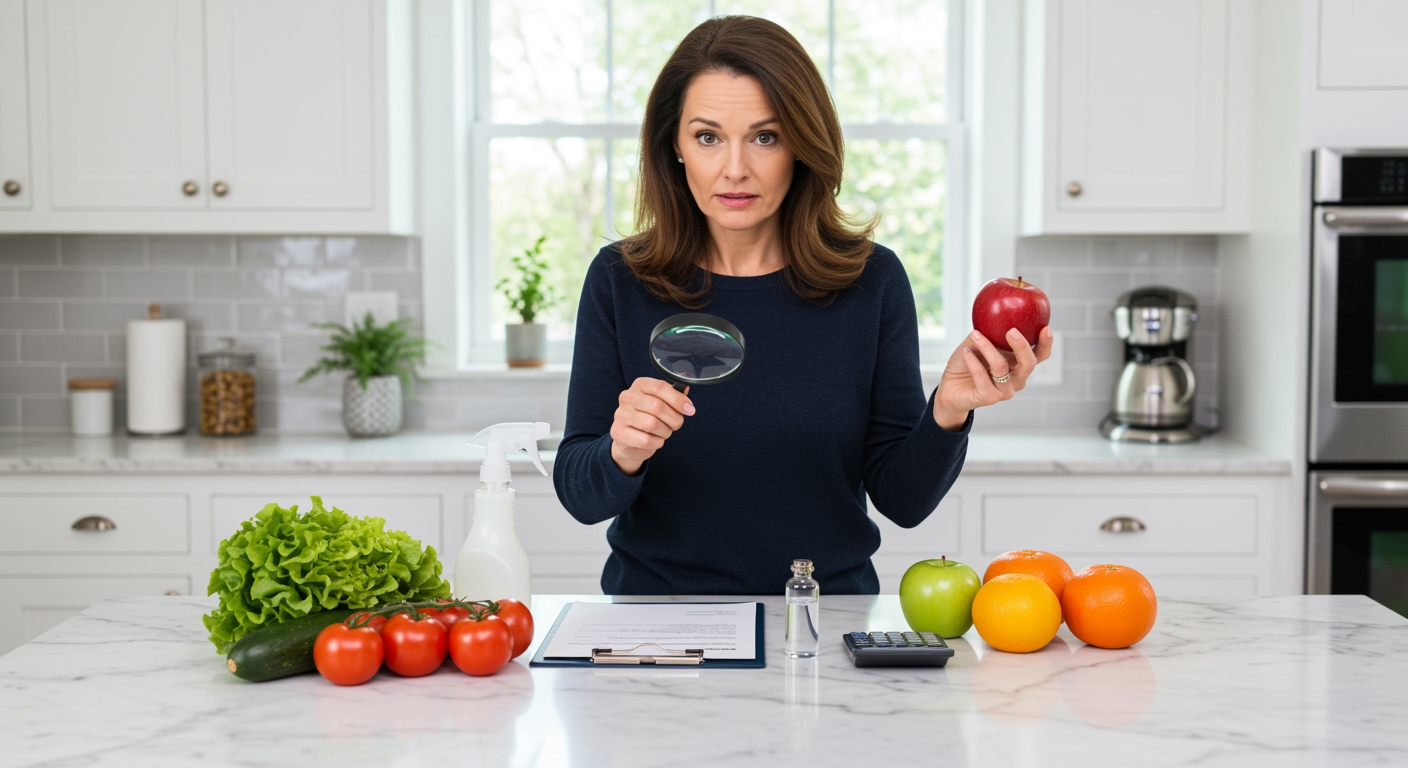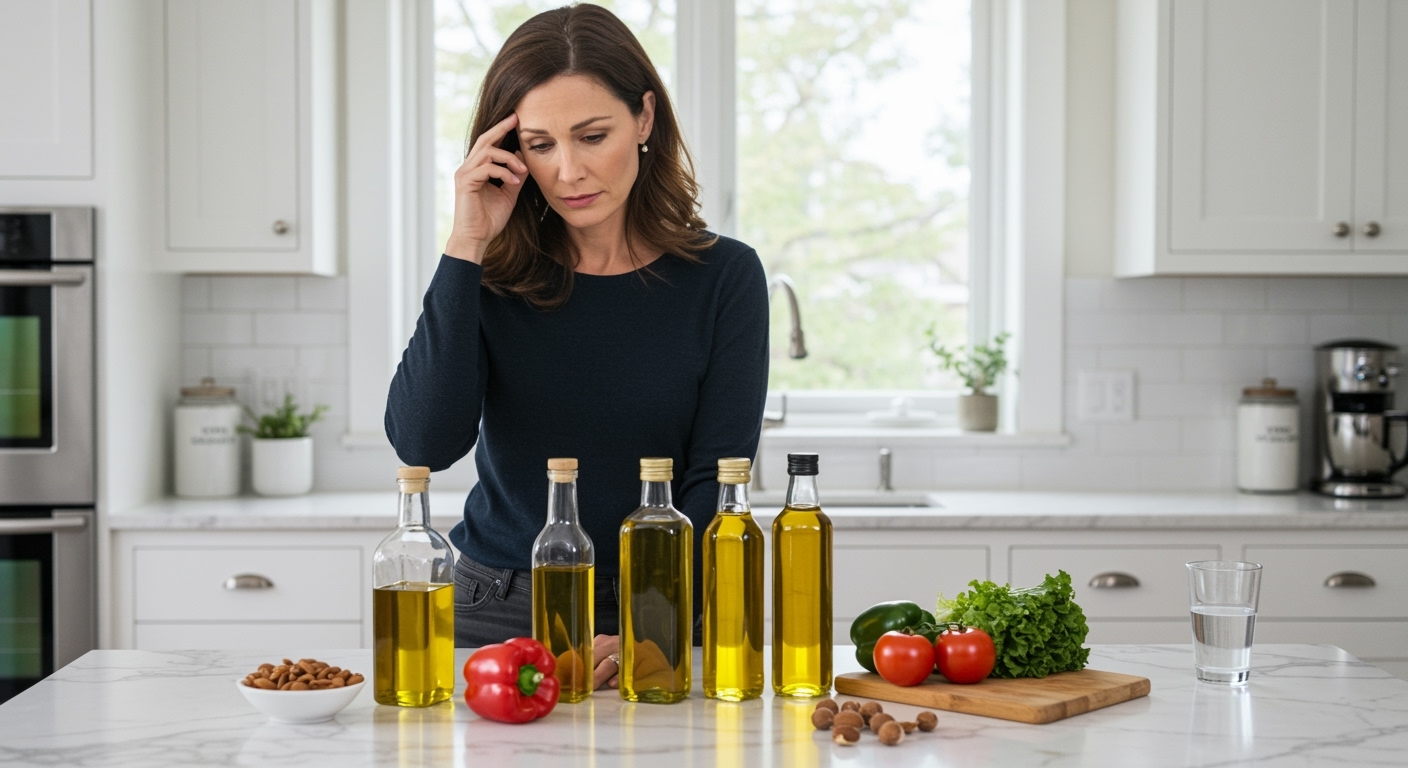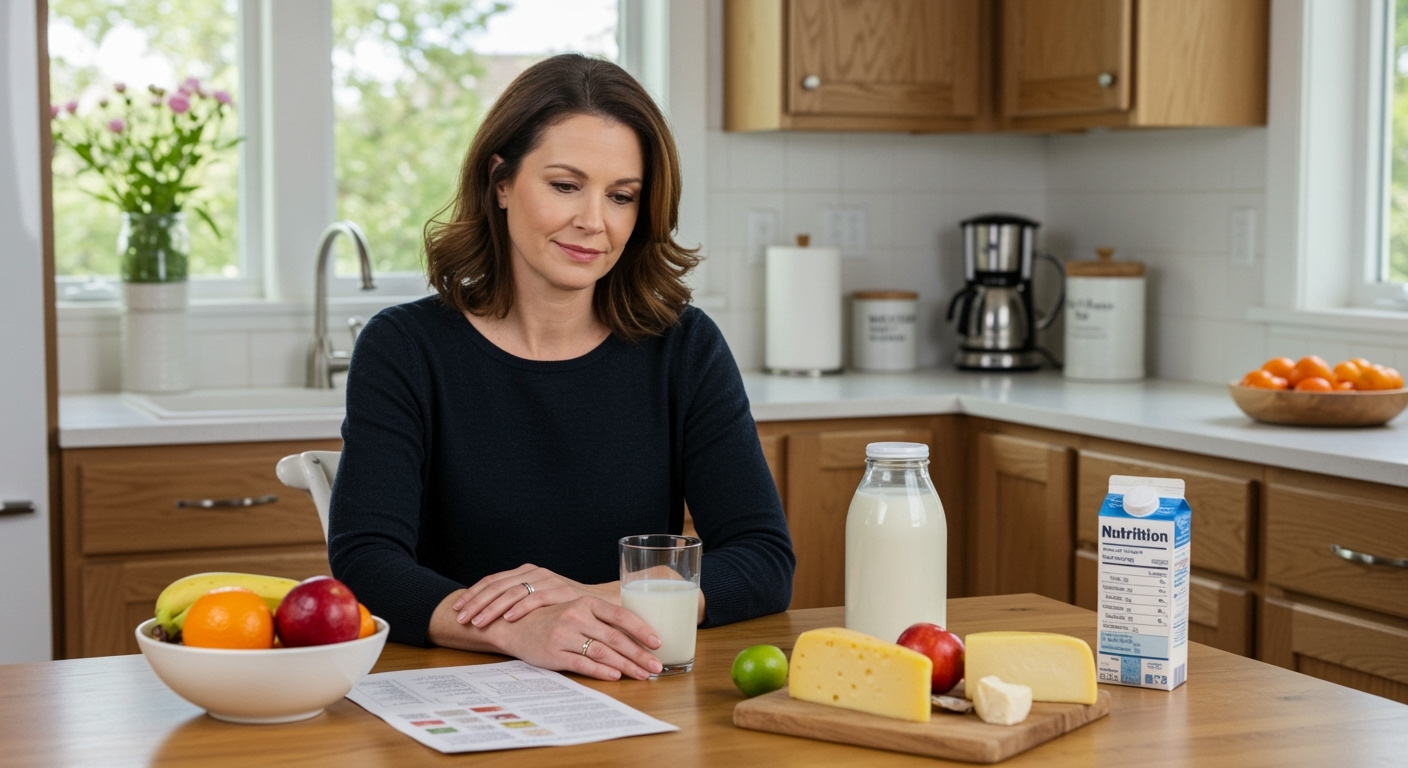✪ Key Takeaway: Organic certification legally permits over 40 synthetic substances including pesticides and processing aids.
Introduction
You walk down the grocery aisle feeling confident about your organic choices, believing you are avoiding all synthetic chemicals and pesticides.
The reality behind organic certification will shock you because the system legally allows dozens of synthetic substances that most consumers assume are completely banned.
Hi, I am Abdur, your nutrition coach and today I am going to expose the hidden truth about what organic labels really mean and which chemicals are secretly permitted in your organic food.
What Synthetic Chemicals Are Actually Allowed In Organic Foods?
The USDA National Organic Program maintains a National List of approved synthetic substances that organic producers can legally use in their farming and processing operations.
This list includes over 40 synthetic materials ranging from pesticides to processing aids that would surprise most health-conscious consumers who choose organic specifically to avoid synthetic chemicals.
Copper sulfate serves as a prime example of an approved synthetic pesticide that organic farmers use regularly to control fungal diseases in crops like grapes, tomatoes, and potatoes.
Sodium hypochlorite, commonly known as bleach, appears on the approved list as a sanitizing agent for equipment and food contact surfaces in organic processing facilities.
The certification process evaluates each synthetic substance based on necessity, environmental impact, and availability of natural alternatives rather than completely prohibiting all synthetic materials.
Many organic producers rely on these approved synthetics because natural alternatives either do not exist or prove ineffective for specific agricultural challenges.
✪ Fact: Organic certification allows synthetic substances when no natural alternative exists or proves effective.
Why Does Organic Certification Allow These Synthetic Materials?
The organic certification system operates on practical necessity rather than absolute purity because completely eliminating all synthetic substances would make organic farming economically impossible in many situations.
Organic standards focus on ecological sustainability and reduced environmental impact rather than complete avoidance of all synthetic materials.
The National Organic Standards Board reviews each synthetic substance through a rigorous evaluation process that considers environmental effects, human health impacts, and availability of natural alternatives.
For example, organic livestock producers need synthetic vitamins and minerals because animals cannot always obtain adequate nutrition from organic feed alone, especially in certain geographic regions with nutrient-poor soils.
Processing aids like citric acid help maintain food safety and quality in organic products, and natural sources cannot always provide sufficient quantities for commercial production.
The certification system balances consumer expectations with agricultural realities, recognizing that some synthetic materials actually support the broader goals of sustainable farming practices.
✪ Pro Tip: Focus on the overall farming system rather than expecting absolute purity from organic labels.
Which Common Pesticides Can Organic Farmers Use?
Organic farmers can legally use several pesticide types that many consumers would never expect to find in their organic produce.
Spinosad, a synthetic insecticide derived from soil bacteria, effectively controls caterpillars, thrips, and other pest insects while remaining approved for organic production.
Copper-based fungicides including copper sulfate and copper hydroxide help organic farmers manage bacterial diseases and fungal infections that would otherwise destroy entire crops.
Sulfur serves as both a fungicide and miticide in organic farming, controlling powdery mildew, rust diseases, and spider mites across various crop types.
Bacillus thuringiensis, while technically biological, undergoes synthetic production processes and formulation with synthetic adjuvants before reaching organic farms.
These approved pesticides must meet strict criteria including minimal environmental persistence, low toxicity to beneficial organisms, and targeted action against specific pests rather than broad-spectrum effects.
The key difference lies in how organic farmers use these materials as part of integrated pest management systems rather than relying on them as the primary solution.
✪ Note: Organic pesticides must break down quickly and have minimal impact on beneficial insects and soil health.
How Do Processing Aids Affect Your Organic Food?
Processing aids represent another category of synthetic substances that organic food manufacturers can legally use during production and packaging.
Sodium bicarbonate helps maintain proper pH levels in organic baked goods and processed foods, ensuring food safety and optimal texture.
Calcium chloride serves as a firming agent in organic canned vegetables and helps maintain structural integrity during processing operations.
Nitrogen gas creates protective atmospheres in organic packaging to prevent oxidation and extend shelf life without using synthetic preservatives.
These processing aids typically do not remain in the final product or exist in such small quantities that they pose no health risks to consumers.
The organic certification requires that processing aids serve essential functions and that manufacturers use the minimum quantities necessary to achieve desired results.
Understanding these allowances helps consumers make informed decisions based on realistic expectations rather than assuming organic means completely chemical-free.
✪ Fact: Processing aids must serve essential functions and use minimal quantities to maintain organic certification.
What Should You Know Before Buying Organic?
Smart organic shopping requires understanding that organic certification represents a farming system approach rather than a guarantee of zero synthetic substances.
Focus on the broader benefits of organic farming including reduced synthetic pesticide use, improved soil health, and support for biodiversity rather than expecting absolute purity.
Read ingredient lists carefully because organic processed foods can contain natural flavors, citric acid, and other additives that undergo synthetic processing.
Consider local and seasonal produce options that may use fewer inputs overall compared to organic products shipped long distances or grown out of season.
Remember that conventional farming has made significant improvements in pesticide safety and environmental impact, so the choice between organic and conventional depends on your personal priorities and budget.
The most important factor remains eating a variety of fruits and vegetables regardless of production method because the health benefits far outweigh any potential risks from approved synthetic substances.
✪ Pro Tip: Prioritize eating more fruits and vegetables over worrying about organic versus conventional production methods.
The Bottom Line
Organic certification legally permits over 40 synthetic substances including pesticides and processing aids because complete elimination of all synthetic materials would make organic farming impossible.
The organic label represents a farming philosophy focused on sustainability rather than absolute chemical purity, and understanding this distinction helps you make informed food choices.
I encourage you to share your thoughts about organic labeling in the comments below and let me know if you have questions about specific organic products or farming practices.
References
At NutritionCrown, we use quality and credible sources to ensure our content is accurate and trustworthy. Below are the sources referenced in creating this article:
- USDA Agricultural Marketing Service: Crop Production Guidelines
- Cornell Law School: Synthetic Substances Allowed for Use in Organic Crop Production
- AgDaily: The List of Pesticides Approved for Organic Production
- Ohio State University Extension: Organic Certification Process





